
All categories
Featured selections
Trade Assurance
Buyer Central
Help Center
Get the app
Become a supplier

(755 products available)

























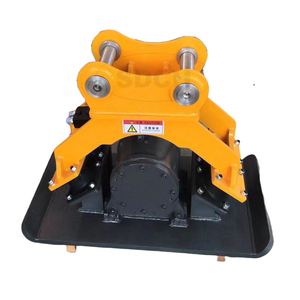


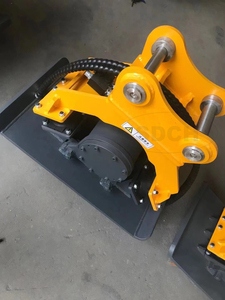

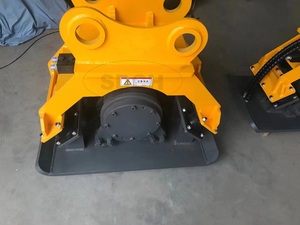

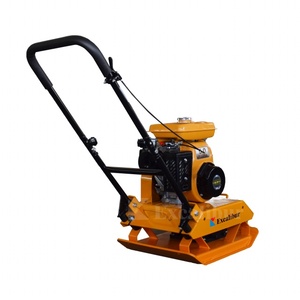
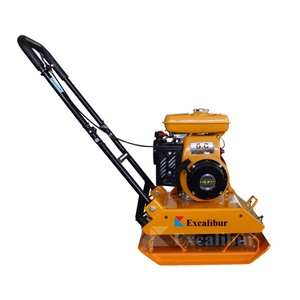

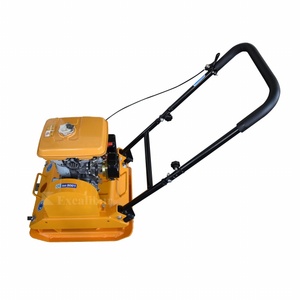






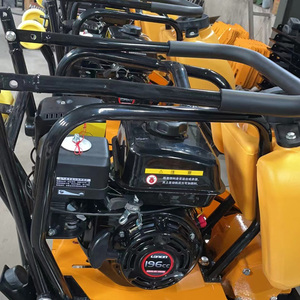
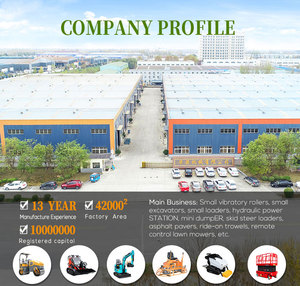
In the realm of construction and building machinery, the role of diesel forward plate compactor cannot be overstated. These machines are integral to various construction projects, providing the necessary force to compact soil, asphalt, and other materials. The effectiveness and efficiency of diesel forward plate compactor ensure that surfaces are stable and durable, making them essential for projects ranging from road construction to building foundations. With advancements in technology, these machines have evolved to meet the growing demands of the construction industry, offering features that enhance performance and ease of use. Whether used in large-scale infrastructure projects or smaller residential developments, diesel forward plate compactor are a critical component in achieving optimal construction results.
There are several types of diesel forward plate compactor available, each designed to meet specific construction needs. The most common types include vibratory plate compactors, tandem rollers, and pneumatic rollers. Vibratory plate compactors are ideal for smaller projects and confined areas, offering excellent maneuverability and control. Tandem rollers are commonly used for asphalt compaction, featuring two steel drums that ensure a smooth and even surface. Pneumatic rollers, on the other hand, utilize a series of rubber tires to provide a kneading action, making them suitable for granular materials. Selecting the right type of diesel forward plate compactor is crucial for achieving the desired compaction results, with each type offering distinct advantages for different applications.
The primary function of diesel forward plate compactor is to reduce the volume of soil, asphalt, or other materials by applying a compressive force. This process increases the density of the material, enhancing its load-bearing capacity and stability. Key features of diesel forward plate compactor include adjustable vibration settings, which allow operators to tailor the compaction force to specific materials and conditions. Many models also offer ergonomic controls and operator comfort features, such as vibration-dampening seats and intuitive dashboards. Additionally, advanced diesel forward plate compactor are equipped with GPS and telematics systems, providing real-time data on machine performance and project progress. These features not only improve efficiency but also ensure precise and consistent compaction across various construction sites.
The construction of diesel forward plate compactor involves the use of high-strength materials to withstand the rigors of construction environments. Steel is a primary material used in the drums and frames, providing durability and resistance to wear and tear. The engines powering diesel forward plate compactor are typically diesel-powered, offering the necessary torque and power to handle heavy-duty tasks. Many models feature advanced hydraulic systems, which enhance the machine's compaction capabilities and allow for smooth operation. Additionally, the design of diesel forward plate compactor prioritizes ease of maintenance, with accessible components and diagnostic tools that simplify servicing and repairs. This ensures that the machines remain operational and efficient throughout their lifespan, minimizing downtime and maximizing productivity.
To achieve the best results, it's important to use diesel forward plate compactor correctly and maintain them regularly. Operators should be trained to understand the specific requirements of the project and adjust the machine settings accordingly. It's crucial to monitor the condition of the compactor's components, such as the drums and hydraulic systems, to prevent wear-related issues. Regular maintenance, including checking fluid levels, inspecting belts and hoses, and replacing worn parts, is essential to keep diesel forward plate compactor in optimal condition. Additionally, storing the machines in a sheltered environment when not in use can prevent exposure to harsh weather conditions, further extending their lifespan. By following these practices, construction professionals can ensure that diesel forward plate compactor perform efficiently and reliably, contributing to the success of their projects.
Selecting the appropriate diesel forward plate compactor for a construction project requires careful consideration of several factors. The type of material being compacted is a primary consideration, as different materials require different compaction techniques. For example, soil compaction may necessitate a vibratory roller, while asphalt might be better served by a tandem roller. Additionally, the scope and scale of the project will influence the choice of diesel forward plate compactor. Larger projects may benefit from heavy-duty models with advanced features, while smaller projects might require more maneuverable and compact machines. Evaluating the specific needs of the project will ensure that the chosen diesel forward plate compactor provides optimal performance and efficiency.
The technological advancements in diesel forward plate compactor have significantly enhanced their functionality and efficiency. Modern compactors are equipped with sophisticated vibration control systems that allow operators to adjust the frequency and amplitude of vibrations to suit different materials and conditions. This adaptability ensures precise compaction and minimizes the risk of over-compaction, which can damage the material. Additionally, many diesel forward plate compactor are now integrated with telematics systems, enabling remote monitoring of machine performance, fuel consumption, and maintenance needs. These innovations not only improve the effectiveness of the compaction process but also extend the lifespan of the machinery by ensuring timely maintenance and reducing downtime.
Operating a diesel forward plate compactor safely is paramount in any construction environment. Operators must be trained to handle the machinery correctly, understanding the nuances of its controls and the specific requirements of the material being compacted. Safety features, such as rollover protection systems and emergency stop mechanisms, are essential in preventing accidents and ensuring the well-being of the operator. Regular safety checks and maintenance of the diesel forward plate compactor are crucial to identify potential hazards, such as hydraulic leaks or worn-out components. By adhering to safety protocols and utilizing the built-in safety features of modern compactors, operators can maintain a secure working environment on the construction site.
When selecting a diesel forward plate compactor, consider the type of material to be compacted, the size and scope of the project, and the specific features of the machine that will aid in achieving the desired compaction results. Evaluating these factors will help ensure that the chosen compactor meets the project's requirements effectively.
Technological advancements in diesel forward plate compactor include vibration control systems and telematics integration. These features allow for precise adjustment of compaction settings and enable remote monitoring of machine performance, enhancing both the efficiency and longevity of the equipment.
Safety measures for operating a diesel forward plate compactor include proper operator training, regular maintenance checks, and the use of built-in safety features such as rollover protection systems. Adhering to these practices helps prevent accidents and ensure a safe working environment.
Maintenance of diesel forward plate compactor should be performed regularly, following the manufacturer's recommendations. Routine checks on hydraulic systems, vibration mechanisms, and engine components are essential to keep the machinery in optimal condition and prevent unexpected breakdowns.
Yes, environmental considerations for using diesel forward plate compactor include minimizing noise pollution and emissions. Opting for models with eco-friendly features, such as low-emission engines and noise reduction technology, can help mitigate the environmental impact of compaction activities on construction sites.